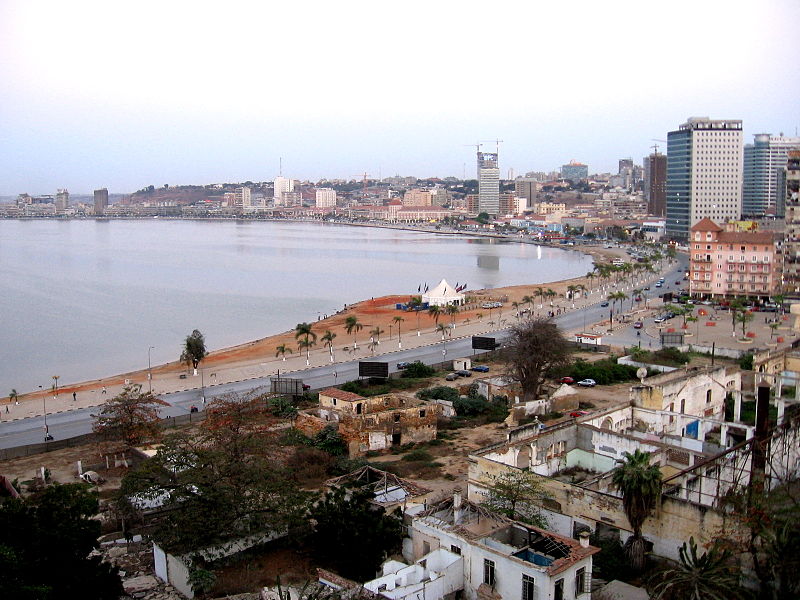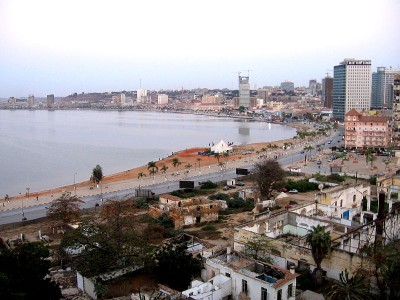People love rankings. They are clear and easily understandable. One such ranking is regularly published by a consulting company named Mercer. It refers to the cost of living for foreigners in 211 cities in the world. Let’s guess: what is the most expensive city in the world? Paris? Moscow? Hong Kong? Zurich? Beijing? New York City? Singapore? Tokio? Or perhaps old, good London? Forget about it! You would probably not look for the most expensive city on the planet in Angola, would you?
However, it is true. The capital city of Angola is called Luanda and it is – concerning expats’ cost of living – definitely the most expensive place in the world. Do not believe this? Judge for yourself:
In Luanda you can rent a two-bedroom apartment in the center of the city for fifteen thousand dollars per month. A cinema ticket (foreign movie) costs $ 12.81; you buy a cup of coffee for not less than $3.00. And if you get hungry, you can try a fast-food and order a simple hamburger menu. Want the bill? Almost 19 dollars!
At these prices, other very expensive cities such as Hong Kong (apartment: $12,889 a month; Cinema: $11.60; coffee: $6.64; hamburger menu: $3.54), Tokyo (apartment: $6,707 a month; Cinema: $17.63; coffee: $6.17; hamburger menu: $6.55) or Moscow (apartment: $8,200 a month; Cinema: $10.51; coffee: $6.81; hamburger menu: 5.82) pale with envy. Maybe you are asking: “What? Where is Luanda? Holy Christ, is this a joke?” No, it is not. It is a reality that has a simple economic explanation.
Luanda is the main administration center of Angola. The city has a very important geographical location on the West African coast, which determines the city as a very important port; the Port of Luanda is namely the third largest Portuguese-speaking port in the world (1st place: Sao Paulo, 2nd place: Rio de Janeiro). As important business hub, Luanda is sometimes called the Gateway to Africa. However, we are done with positive points here. Despite huge mineral resources (oil, diamonds, gold) and rapid economic growth (particularly thanks to trading partnership with China) Angola is still a very poor country. 85% part of the population works in agriculture. The civil war in the country ended only in 2002. A political instability, war crimes and repeating destruction of important factories during the war triggered a massive process of urbanization that unsurprisingly led to Luanda. The city had already had big problems with missing infrastructure, water and electricity supply or hygienic and sanitation standards and a massive inflow of inhabitants made it even worse. Therefore, violent crimes or drug trafficking are proportionately increasing and slums are larger and larger.
The above characteristics form conditions for extraordinary prices of services. Why? The location, the port, the growing economy, the mineral resources and industrial development catch the interests of international corporations, represented in the city by their employees. Poor living conditions in the city, however, constitute a barrier reflecting a very limited range of non-tradable goods (i.e. apartments, cinemas, hairdressers, restaurants, etc.) in standards common in the developed world. Hence the simple equation applies here:
High demand + low supply = huge prices
The table below lists the ten most expensive cities in the world and, for comparison, other selected cities. Prague is the number 92, Bratislava 84, Budapest 135, while the Pakistani capital Karachi closes the list.
TABLE: Most expensive cities in the world 2014 – living conditions for expats
| Rank 2014 | Rank 2013 | City | Country |
| 1 | 1 | Luanda | Angola |
| 2 | 4 | N’Djamena | Chad |
| 3 | 6 | Hong Kong | Hong Kong |
| 4 | 5 | Singapore | Singapore |
| 5 | 8 | Zurich | Switzerland |
| 6 | 7 | Geneva | Switzerland |
| 7 | 3 | Tokyo | Japan |
| 8 | 9 | Bern | Switzerland |
| 9 | 2 | Moscow | Russia |
| 10 | 14 | Shanghai | China |
| Others (chosen cities): | |||
| 12 | 25 | London | United Kingdom |
| 16 | 24 | New York City | United States |
| 27 | 37 | Paris | France |
| 32 | 48 | Vienna | Austria |
| 49 | 19 | Sao Paulo | Brazil |
| 67 | 90 | Dubai | United Arab Emirates |
| 84 | 93 | Bratislava | Slovakia |
| 92 | 73 | Prague | Czech Republic |
| 135 | 130 | Budapest | Hungary |
| 211 | 214 | Karachi | Pakistan |
Source: Mercer.




